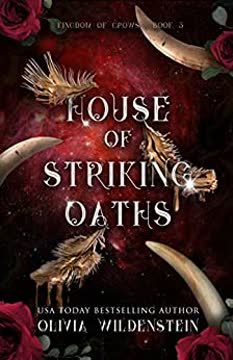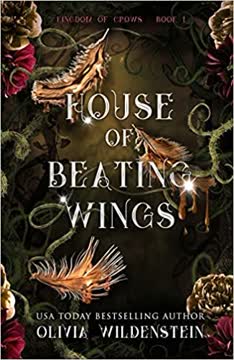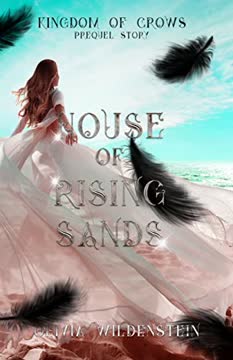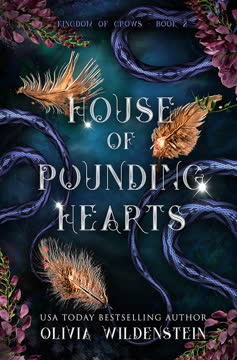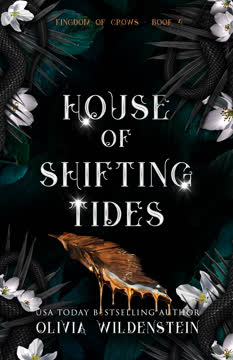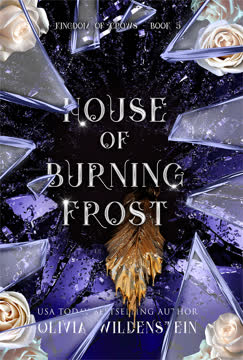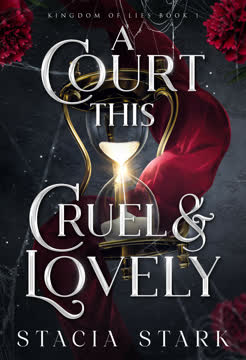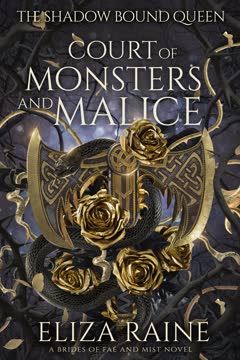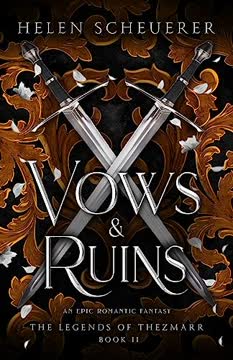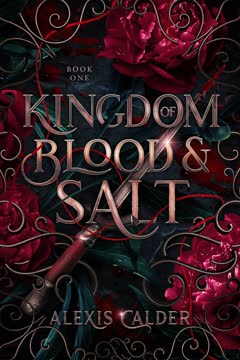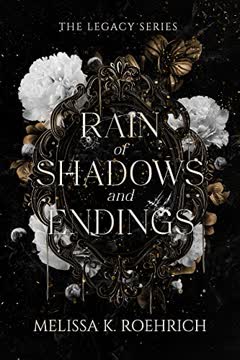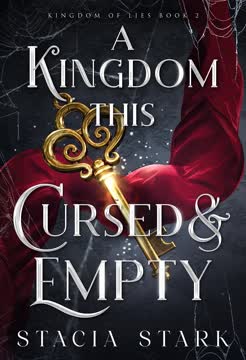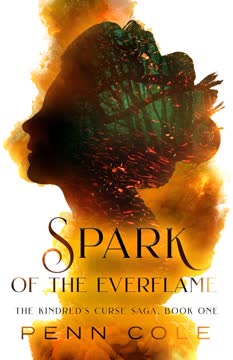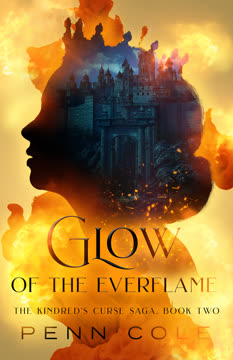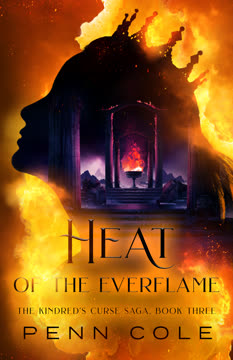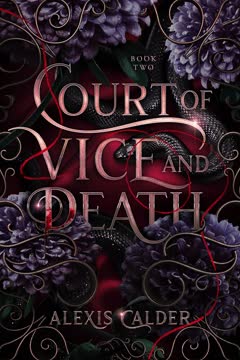Plot Summary
Blood and Betrayal
The story opens in a world still reeling from ancient wars and recent betrayals. Fallon, a young woman of mixed magical heritage, is torn between two worlds: the Crows, shifter warriors led by her mate Lore, and the Fae, ruled by the cunning and ruthless Dante. The fragile peace is shattered when Fallon is kidnapped, her magic bound, and her loyalties tested. The blood of witches, Crows, and Fae stains the land, and every character is haunted by the ghosts of their own betrayals. Fallon's journey begins with a vial of blood, a shattered bond, and the knowledge that the fate of kingdoms rests on her choices.
Chains and Cages
Imprisoned in Dante's obsidian fortress, Fallon is stripped of her agency and forced to confront her own powerlessness. The physical chains that bind her are matched by the emotional chains of guilt, longing, and fear. As she battles her captors with wit and defiance, she discovers unlikely allies and the true cost of trust. The cage becomes a crucible, forging her anger into resolve. Meanwhile, Lore and the Crows are left to navigate a kingdom on the brink, their every move shadowed by the threat of betrayal from within and without.
The Unbinding Spell
Fallon's only hope lies in the hands of Meriam, the enigmatic witch whose bloodline is both a curse and a key. The unbinding ritual is fraught with danger, as Meriam's motives are as tangled as the spells she weaves. Fallon must submit to a painful and intimate ceremony, one that will awaken her dormant magic but also tie her fate to enemies and kin alike. The spell is not just a release, but a transformation—one that will ripple through every relationship and every power structure in the land.
Bargains and Betrayals
Freed from her magical shackles, Fallon is thrust into a web of bargains, oaths, and shifting allegiances. Dante seeks to bind her to him through marriage and blood, hoping to harness her power for his own ends. Old friends reveal new faces, and every promise comes with a hidden cost. Fallon learns that trust is a currency more precious than gold, and that betrayal can come from the most unexpected quarters. The lines between love and manipulation blur, and Fallon must decide who she is willing to save—and who she is willing to sacrifice.
The Iron Crow Falls
The war between Crows and Fae escalates as obsidian weapons—infused with witch's blood—begin to turn shifters into lifeless statues. When one of Lore's own crows falls, the emotional and strategic toll is devastating. The loss is not just of a comrade, but of hope itself. Fallon is forced to confront the reality that victory may require impossible choices, and that even the strongest bonds can be shattered by the weight of war. The iron crow becomes a symbol of both the cost of resistance and the resilience of those who remain.
Thrones and Thorns
As Dante's grip tightens, he forces Fallon into a mockery of marriage, seeking legitimacy through her blood and magic. The throne he covets is built on thorns—every victory comes with a wound, every alliance with a betrayal. Fallon's agency is tested as she navigates court intrigue, torture, and the ever-present threat to those she loves. The struggle for power becomes personal, and the battle for the throne is waged not just with swords, but with secrets, oaths, and the willingness to endure pain for a greater cause.
The Witch's Blood
The true nature of Shabbin blood magic is revealed: it can both protect and destroy, bind and free. Fallon learns that her blood is the linchpin in a centuries-old curse, and that her choices will determine the fate of both Crows and Fae. The witch Meriam's past is laid bare, exposing the roots of the conflict and the possibility of redemption. Fallon must decide whether to use her power to save or to punish, and whether the cycle of vengeance can ever be broken. The cost of magic is never paid by one alone.
The Invisible War
The final confrontation is not just a clash of armies, but a war of wits, illusions, and invisible forces. Fallon and her allies use every trick at their disposal—spells of invisibility, shifting forms, and the manipulation of oaths—to outmaneuver Dante and his loyalists. The ice caves of Glace become a labyrinth of danger, where every step could be a trap and every ally a potential traitor. The war is fought as much in the mind as on the battlefield, and victory will go to those who can see through the fog of deception.
The Shifting Tides
As the balance of power shifts, so too do the loyalties and identities of the characters. Allies become enemies, enemies become kin, and the tides of fate sweep everyone toward an uncertain future. Fallon's journey from captive to queen is mirrored by the transformation of the world around her. The old order crumbles, and new possibilities emerge from the wreckage. The shifting tides bring both loss and renewal, and the promise that even the deepest wounds can heal in time.
The Price of Magic
The final spells are cast, and the true cost of magic is revealed. Fallon must pay with blood, with love, and with the lives of those she holds dear. The Cauldron, source of all magic, demands its due, and not everyone will survive the reckoning. The price of breaking the curse is steep, and the consequences will echo for generations. Fallon learns that true power lies not in domination, but in the willingness to bear the burden of choice.
The Cauldron's Judgment
The Cauldron, ancient and inscrutable, passes judgment on the world. The wards that have divided kingdoms for centuries are brought down, and the possibility of peace is born from the ashes of war. Fallon's actions are weighed, and the future of magic itself hangs in the balance. The judgment is not just on the characters, but on the very nature of power, love, and sacrifice. The world is remade, and the survivors must find their place in it.
The Last Oath
With the final oaths sworn and the last enemies defeated, Fallon and Lore are free to claim their place as rulers of a united kingdom. But the scars of war remain, and the cost of victory is written in blood and memory. The survivors must learn to live with what they have done—and what they have lost. The last oath is not to a king or a cause, but to each other: to build a future where the mistakes of the past are not repeated.
The Serpent's Return
The story's emotional climax comes with the return of Zendaya, Fallon's mother, transformed and reborn. The reunion of family is bittersweet, marked by both joy and the lingering pain of loss. The cycle of vengeance is broken, and the possibility of healing is made real. The serpent's return is a symbol of renewal, of the power of love to transcend even the deepest wounds. The world is changed, but hope endures.
The Sky Awaits
With the curses broken and the kingdoms united, Fallon and Lore look to the future. The sky, once a symbol of war and exile, becomes a promise of freedom and possibility. The survivors gather to mourn the lost and celebrate the living, forging new bonds and new traditions. The sky awaits not just the Crows, but all those willing to rise above the past and claim their place in the world. The story ends with the promise of flight, of love, and of a future shaped by choice.
The End of Kings
The final chapter is both an ending and a beginning. The old kings and queens are gone, their legacies written in the scars and hopes of those who remain. Fallon and Lore, united by love and tested by war, step into their roles as rulers and partners. The world they inherit is imperfect, but it is theirs to shape. The end of kings is not the end of story, but the start of a new chapter—one where the lessons of the past guide the choices of the future.
Characters
Fallon Báeinach
Fallon is the heart of the story—a young woman of mixed Crow and Shabbin heritage, torn between worlds and destinies. Her journey is one of transformation: from captive to queen, from powerless to powerful, from pawn to player. Psychologically, Fallon is defined by her fierce loyalty, her capacity for forgiveness, and her struggle with the burdens of leadership. Her relationships—with Lore, her parents, and her enemies—are fraught with longing, betrayal, and the search for belonging. Fallon's greatest strength is her refusal to be defined by others' expectations; her greatest weakness is her tendency to bear the weight of the world alone. By the end, she emerges as a leader who understands that true power lies in vulnerability and choice.
Lore (Lorcan Ríhbiadh)
Lore is the enigmatic and powerful leader of the Crows, marked by both his magical prowess and his deep emotional scars. His love for Fallon is both his anchor and his greatest vulnerability. Lore's psychological complexity lies in his struggle to balance the demands of leadership with the needs of his heart. He is fiercely protective, sometimes to the point of possessiveness, and his journey is one of learning to trust—not just others, but himself. Lore's arc is defined by sacrifice, resilience, and the willingness to let go of control in order to build a better world.
Dante Regio
Dante is the story's primary antagonist—a Fae king whose charm masks a ruthless ambition. His relationship with Fallon is a twisted mirror of Lore's: where Lore seeks partnership, Dante seeks possession. Psychologically, Dante is driven by insecurity, a need for validation, and a fear of irrelevance. His descent into cruelty is both a product of his upbringing and his own choices. Dante's arc is a cautionary tale about the dangers of unchecked power and the inability to accept change.
Meriam
Meriam is the enigmatic Shabbin sorceress whose blood and choices shape the destinies of kingdoms. She is both villain and victim, her actions motivated by love, regret, and a desire for redemption. Psychologically, Meriam is defined by her guilt and her need to atone for past mistakes. Her relationship with Fallon is fraught with ambivalence—she is both mentor and manipulator, protector and threat. Meriam's arc is one of sacrifice, as she ultimately chooses to break the cycle of vengeance she helped create.
Cathal Báeinach
Cathal is Fallon's Crow father, a man marked by loss and the struggle to hold his family together. His love for Zendaya and Fallon is the core of his identity, but it is also the source of his greatest pain. Psychologically, Cathal is defined by his stoicism, his sense of duty, and his fear of vulnerability. His arc is one of learning to let go—of grief, of control, and of the past—in order to embrace the possibility of healing and reunion.
Justus Rossi
Justus is a master manipulator, a Faerie general whose loyalties are as fluid as his strategies. He is both a source of danger and a surprising wellspring of support for Fallon and her allies. Psychologically, Justus is driven by pragmatism, a desire for self-preservation, and a hidden capacity for loyalty. His arc is one of gradual redemption, as he chooses to use his cunning for the greater good, even at personal cost.
Bronwen
Bronwen is the story's soothsayer, a woman burdened by visions of the future and the knowledge that her actions may bring both salvation and ruin. Her relationship with Fallon is complex—part mentor, part manipulator, part kin. Psychologically, Bronwen is defined by her sense of duty, her willingness to bear the weight of others' destinies, and her struggle with the limits of her own power. Her arc is one of sacrifice, as she gives her life to ensure the future she believes is right.
Gabriele Moriati
Gabriele is a Faerie caught between worlds, whose loyalty to Fallon and the Crows ultimately costs him his life. He is defined by his courage, his sense of honor, and his willingness to sacrifice himself for a cause greater than himself. Gabriele's arc is a testament to the power of choice and the tragedy of war.
Zendaya (Daya)
Zendaya is Fallon's Shabbin mother, whose absence haunts much of the story. Her return is both miraculous and fraught, as she must reconcile her new form and the scars of her past with the family she left behind. Psychologically, Zendaya is defined by her resilience, her capacity for love, and her struggle to reclaim her identity. Her arc is one of healing and reunion, a symbol of the possibility of redemption.
Dante's Loyalists (Tavo, et al.)
The soldiers and generals who follow Dante are defined by their loyalty, their ambition, and their willingness to commit atrocities in the name of power. Psychologically, they are shaped by fear, indoctrination, and the desire for belonging. Their arcs are cautionary tales about the dangers of blind allegiance and the cost of war.
Plot Devices
Blood Magic and Oaths
The story's central plot device is the use of blood magic and binding oaths to control, protect, and destroy. Blood is both a literal and symbolic currency—used to cast spells, seal bargains, and determine lineage. Oaths, once sworn, are inescapable, and their consequences drive much of the plot's tension. The narrative structure is built around the making and breaking of these magical contracts, with foreshadowing woven through every promise and betrayal. The device serves to externalize the characters' internal struggles with trust, loyalty, and the cost of power.
Shifting Forms and Identity
The ability to shift between forms—Crow, serpent, smoke, stone—is both a tactical advantage and a metaphor for the characters' psychological journeys. The plot uses these transformations to explore themes of identity, belonging, and change. The device also allows for moments of dramatic irony, as characters hide or reveal their true selves at pivotal moments.
Prophecy and Vision
Bronwen's visions and the prophecies of the Cauldron serve as both guide and obstacle, shaping the characters' choices and the story's direction. The device is used to create suspense, foreshadow tragedy, and explore the tension between fate and free will. The narrative structure is cyclical, with past, present, and future constantly informing each other.
The Cauldron and the Wards
The magical wards that divide kingdoms and the Cauldron that is the source of all magic are central plot devices. Their presence creates both physical and psychological barriers, driving the characters to seek freedom, unity, and healing. The breaking of the wards is both a literal and symbolic climax, representing the possibility of reconciliation and the end of old enmities.
The Power of Sacrifice
The story repeatedly uses sacrifice—of blood, love, and life—as a plot device to drive home the cost of magic and the price of peace. Characters are forced to choose between personal happiness and the greater good, and the narrative structure ensures that every victory is paid for in loss.
Analysis
House of Striking Oaths is a sweeping fantasy that interrogates the nature of power, the legacy of trauma, and the possibility of healing in a world built on blood and betrayal. At its core, the novel is about the struggle to break cycles—of violence, of vengeance, of magical bondage—and the realization that true freedom comes not from domination, but from the willingness to bear the burden of choice. The story's use of blood magic and binding oaths externalizes the psychological chains that bind its characters, making the personal political and the political deeply personal. The narrative is unflinching in its depiction of the cost of war, the pain of loss, and the difficulty of forgiveness. Yet, it is also a story of resilience, of the power of love to transcend even the deepest wounds, and of the hope that, with courage and sacrifice, a better world can be forged. The lessons are clear: power without compassion is hollow, peace without justice is fragile, and the future belongs to those who are willing to risk everything for the possibility of healing.
Last updated:
Review Summary
House of Striking Oaths received mixed reviews, with an overall rating of 4.01 out of 5. Some readers loved the book's action, reveals, and character development, praising Fallon's growth and the satisfying conclusion. However, others found the pacing slow, criticized the abundance of information dumps, and felt the ending was rushed. Common complaints included confusing world-building, inconsistent character behavior, and modern dialogue clashing with the fantasy setting. Despite divisive opinions, many readers remained invested in the series and looked forward to potential spin-offs.
